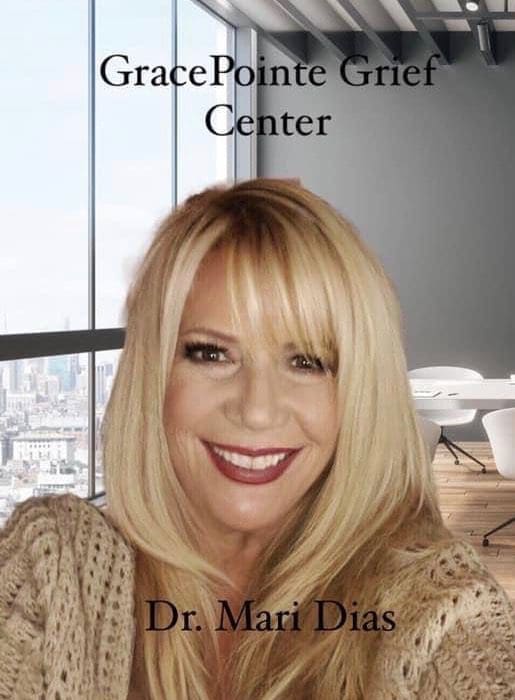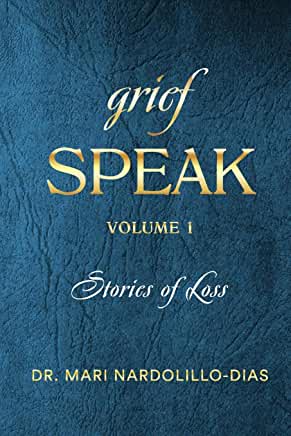Search Posts
Recent Posts
- Rhode Island Legislature Highlights Accomplishments for the 2025 Session June 25, 2025
- Sports in RI: Cody Tow, Volleyball Past, Present and Into His Future – John Cardullo June 25, 2025
- Need a Break? Time for Sour Grapes – Tim Jones June 25, 2025
- Rhode Island Weather Forecast for June 25, 2025 – Jack Donnelly June 25, 2025
- It is what it is: Commentary on 6.25.25 with Jen Brien June 25, 2025
Categories
Subscribe!
Thanks for subscribing! Please check your email for further instructions.

GriefSpeak: Please Knock and Cry – Mari Dias
By: Dr. Mari Dias, contributing writer
“…All those who try to go sole alone,
Too proud to be beholden for relief,
Are absolutely sure to come to grief. (Robert Frost)
The most frequently asked question I receive from readers of my book is “How?”. How did all these grievers who lost a love one, particularly from traumatic deaths, survive to tell the stories in your book? My answer is always the same – they sought help. They spoke their grief. Why doesn’t everyone? I recently responded to an online survey asking individuals what stops them from seeking help for grief. According to the above quote, Frost suggests that many are too proud to seek help. No one responded with this answer; however, many responding with the following:
“It’s just grief. Everybody experiences it. I don’t need a counselor for that.”
“I’ve been to counseling before, and it didn’t help.”
“It’s too expensive.”
“I’m afraid I will cry and never stop.”
“I’m afraid they will think I’m crazy.”
“I don’t want to talk about my grief. It makes it too real. I’d rather just go back to the job of living.”
I wish I could respond to each of these of these respondents individually. One MUST speak their grief. There are many avenues. You can choose a support group, speak with supportive family members on a regular basis, and/or seek professional help. Unfortunately, family members are grieving themselves: in addition, family and friends (for many reasons) do not necessarily want to hear the story again. “Get over it.” No. You will never get over it. You will have a scar on your heart. The most effective way to deal with grief is to talk about it. SPEAK YOUR GRIEF. Do not be reticent in order to protect others. Don’t think you are a bother. A client recently said “I’ve been looking around for some peace and solace since the death of my mother. All the doors around me were closed. I just didn’t realize all I had to do was knock.”
He knocked and I answered. But he had to knock. There are many who will answer as well.
I receive many calls at GracePointe with an empty voice mail. Callers change their minds. They ‘chicken out.” It may not be pride but embarrassment or self-conscious feelings. I return all the calls, despite the lack of a message. Personally, I think everyone should have a therapist! What a wonderful outlet to speak to an objective, non-judgmental person who has no vested interest in your experiences and does not know the players. It’s a treasure.
Grief counseling incorporates many different modalities. I usually start with “tell me your story”. I am then introduced to their lost loved one via photos, which strikes a memory chord. I then join those revisiting different periods of their lives with their loved one. Some clients use journaling, others read, paint, draw, create a legacy through fundraisers, memorials etc. The most difficult question I ask is, ”Tell me what it feels like to be you today?”
Every one of the grievers in my book has gone through a minimum of 3 months of grief counseling and support. That is how they are able to survive. And thrive. “The work of grief is hard work. And we need people to help us – to listen, to hold us, to remember our loved one with us…” (Martha Whitmore Hickman,1994).
There is a story of a little girl who arrived home late for dinner. When her mom asked her why she was late, she said she was helping Jane because her doll broke. Her mother asked:
“Did you help her fix the doll?”
“No, the child responded. I helped her cry.” (Martha Whitmore Hickman,1994).
Find someone who answers the knock on the door. Find someone to help you cry.
_____

Dr. Mari Dias is a nationally board-certified counselor, holds a Fellow in Thanatology and is certified in both grief counseling and complicated grief.
She is Professor of Clinical Mental Health, Master of Science program, Johnson & Wales University. Dias is the director of GracePointe Grief Center, in North Kingstown, RI. For more information, go to: http://gracepointegrief.com/
Dr. Dias is the author of GriefSpeak – Stories of Loss

